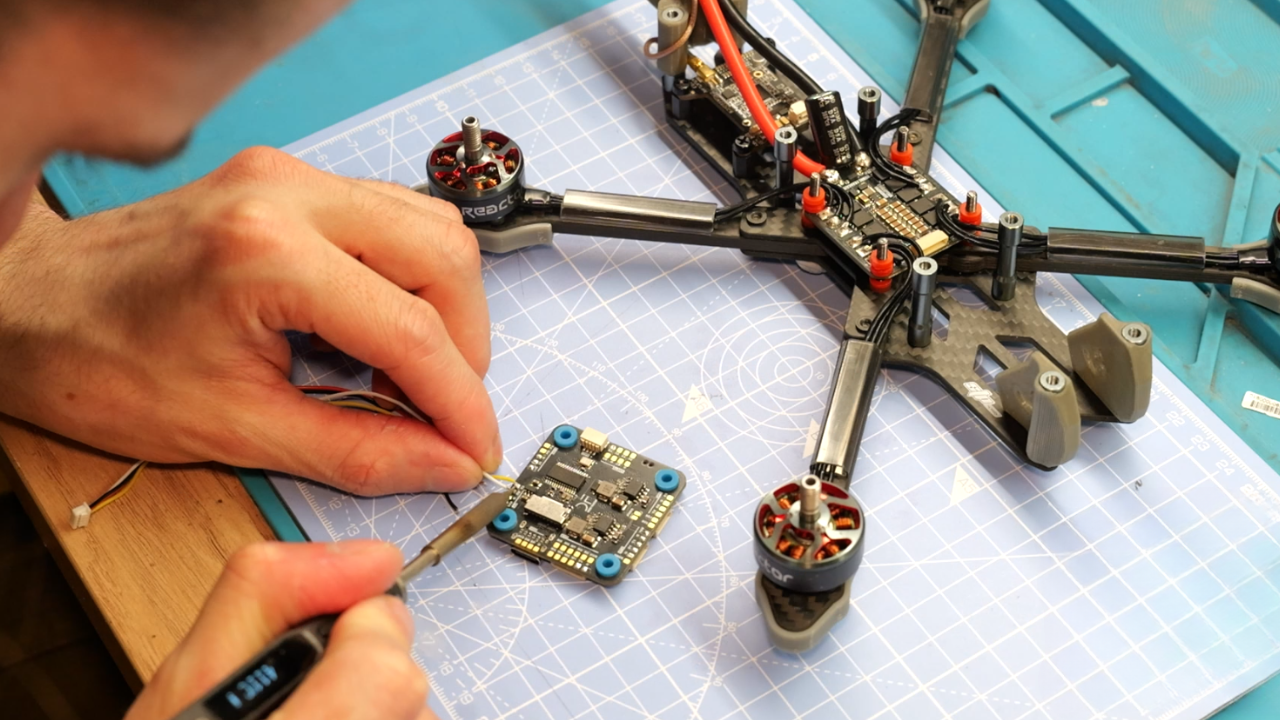At the dawn of 2025, drones are becoming essential tools in many strategic sectors: agriculture, construction, civil security, defense, logistics and audiovisual. Once confined to military use, these unmanned aircraft have become the symbols of a silent but profound technological revolution.
Against this backdrop, France has a number of major assets at its disposal, but still faces a major challenge: structuring an industrial sector capable of competing with the world's giants, while guaranteeing its technological sovereignty. More than ever, mastery of the technological building blocks of UAVs will determine our independence in terms of defense, innovation and economic competitiveness.
A decisive technological shift
Drones embody a technological leap comparable to that represented by the automobile or computers in their day. They combine cutting-edge disciplines: mechatronics, artificial intelligence, on-board vision, wireless communication, inertial navigation systems, high-density batteries and on-board processing.
This concentration of technologies has concrete applications everywhere:
- In precision agriculture, drones can be used to map plots, detect disease or water stress, and target crop protection treatments. The result: more efficient, cleaner, more sustainable farming.
- In the construction industry, drones reduce human risks by inspecting structures at height, model construction sites in 3D, facilitate progress monitoring, and deliver tangible productivity gains.
- In the field of security, they offer rapid surveillance, intervention in hostile environments and post-disaster inspection capabilities. Their use by firefighters, gendarmerie and rescue teams is becoming increasingly widespread.
- In logistics, experiments are underway to deliver parcels by drone, particularly in rural or island areas, thus reducing costs and lead times.
As such, drones can no longer be considered a mere gadget. They are becoming a key technological infrastructure, like the cloud, fiber optics or satellites.
Drones: an industrial revolution in the making
The global market for civil and professional drones is growing exponentially. According to Drone Industry Insights, it could reach $54 billion by 2030. In France, the industry is already worth several hundred million euros, with over 10,000 professional remote pilots and several hundred innovative SMEs.
This growth is based on multiple dynamics:
- Falling component costs (sensors, cameras, motors, batteries) make drones more affordable.
- Miniaturization enables us to design drones that are lighter, more agile, and better suited to missions in confined environments (inspection of factories, sewers, engineering structures).
- The rise of FPV (First Person View), a popular sport or real-time inspection technology, is driving innovation in video capture and transmission.
- Safety requirements in industry and critical infrastructures favor the use of robotic inspection.
The economic spin-offs are significant: job creation, skills enhancement, dual innovation (civil/military), technological outreach.
However, this momentum is largely driven by foreign players, notably Chinese and American. In Europe, and France in particular, the industrial fabric is still fragile in the face of ultra-capitalized competitors like DJI.
France's position: under-exploited potential
Yet France has no shortage of talent or skills. It has a complete ecosystem:
- Pioneering companies such as Delair, Parrot, Novadem and Azur Drones, capable of designing high-performance drones for surveillance and inspection.
- High-level research laboratories (ONERA, CNRS, INRIA) working on onboard AI, autonomous navigation or tomorrow's air traffic management (UTM).
- Specialized training in remote piloting, robotics engineering or embedded systems, at schools such as ENAC, ISAE-Supaero, or IUT.
What's more, the French government has identified the drone industry as a strategic one. The France 2030 plan devotes several tens of millions of euros to the development of aerial robotics, particularly for military and industrial applications. The Ministry of the Armed Forces has also launched several support programs, via the DGA, to reinforce national autonomy.
Despite this, the industry remains fragmented, with a heavy reliance on Asian components (ESC, cameras, batteries, flight controllers, etc.). In 2021, total sales for the French industry were estimated at 54 million euros. By comparison, DJI alone was worth 4 billion euros.
The risk is therefore clear: letting an industry of the future slip away, to the benefit of foreign powers, while losing technological control of critical systems.
French drone in action!
With this in mind, the French Drone initiative is an ambitious, structuring and sovereign response to this situation. Its aim is to create a 100% French manufacturing ecosystem, mastering all the technological building blocks, from design to assembly.
This can be achieved in several ways:
- The development of sovereign electronic components : ESCs, control boards, firmware, communication modules, etc. These components, essential to UAV control and stability, are currently mainly imported. The aim is to produce them locally, with specialized French partners.
- The design of modular platforms adapted to the needs of professionals: industrial, military, agricultural or security drones, with robust hulls, FPV systems, thermal cameras or integrated LiDAR modules.
- Agile, competitive national production, capable of responding to public and private tenders, without logistical dependence on Asian markets.
- The creation of a network of French subcontractors, to relocate added value along the entire industrial chain (machining, assembly, electronics, software, maintenance).
By focusing on technological excellence and industrial agility, Drone Français aims to demonstrate that it is possible to produce high-performance, competitive and sovereign UAVs in France.
But even more than that, the initiative is designed to support a long-term vision : that of strategic autonomy, based on controlled, resilient technologies capable of constant evolution.
The drone is not just a flying object. It's a vector of industrial innovation, a transformation tool for our companies, and a sovereignty issue for our country.
France has the resources, skills and ambitions to succeed in this sector. But time is running out. Without a concerted effort by manufacturers, researchers and public authorities, we run the risk of remaining mere users, dependent on foreign technologies.
With the French Droneinitiative, another path is opening up: that of a Made in France model that is efficient, competitive and a source of value for our economy. This is the path we must take, without delay. Because in the drone industry, if you don 't get off the ground, you're grounded.
